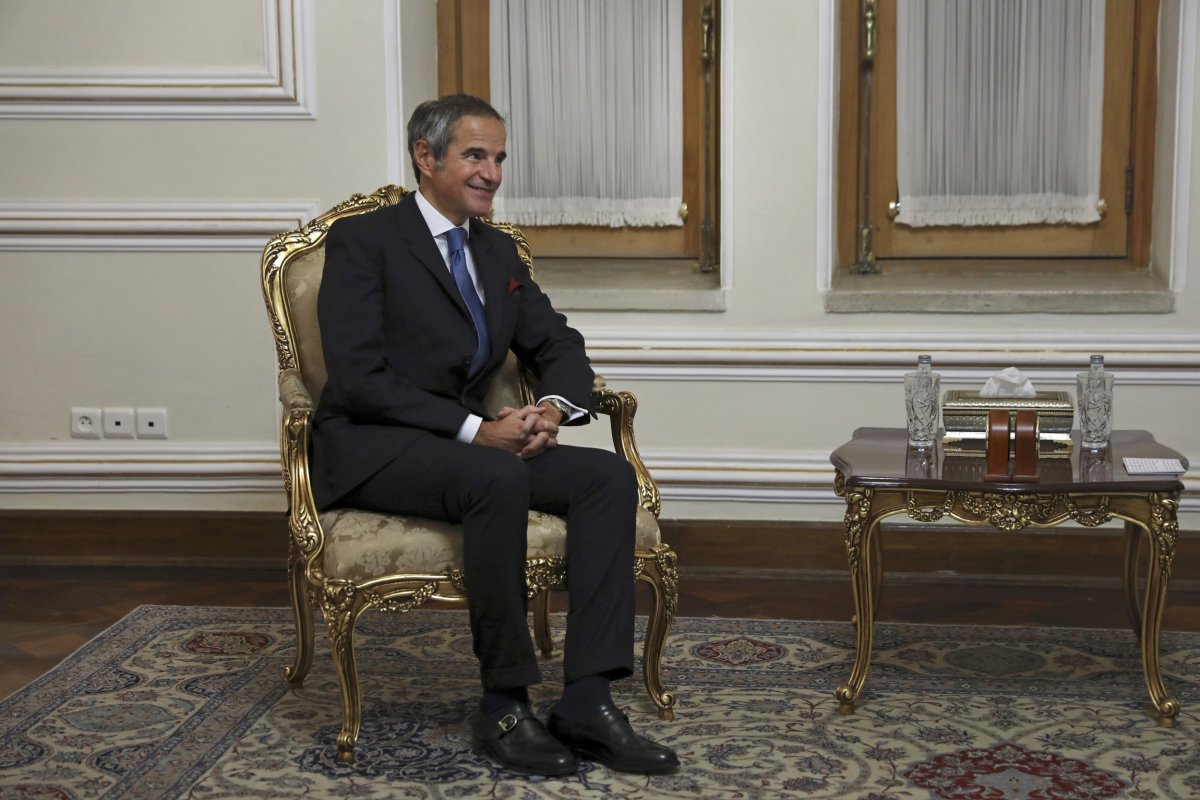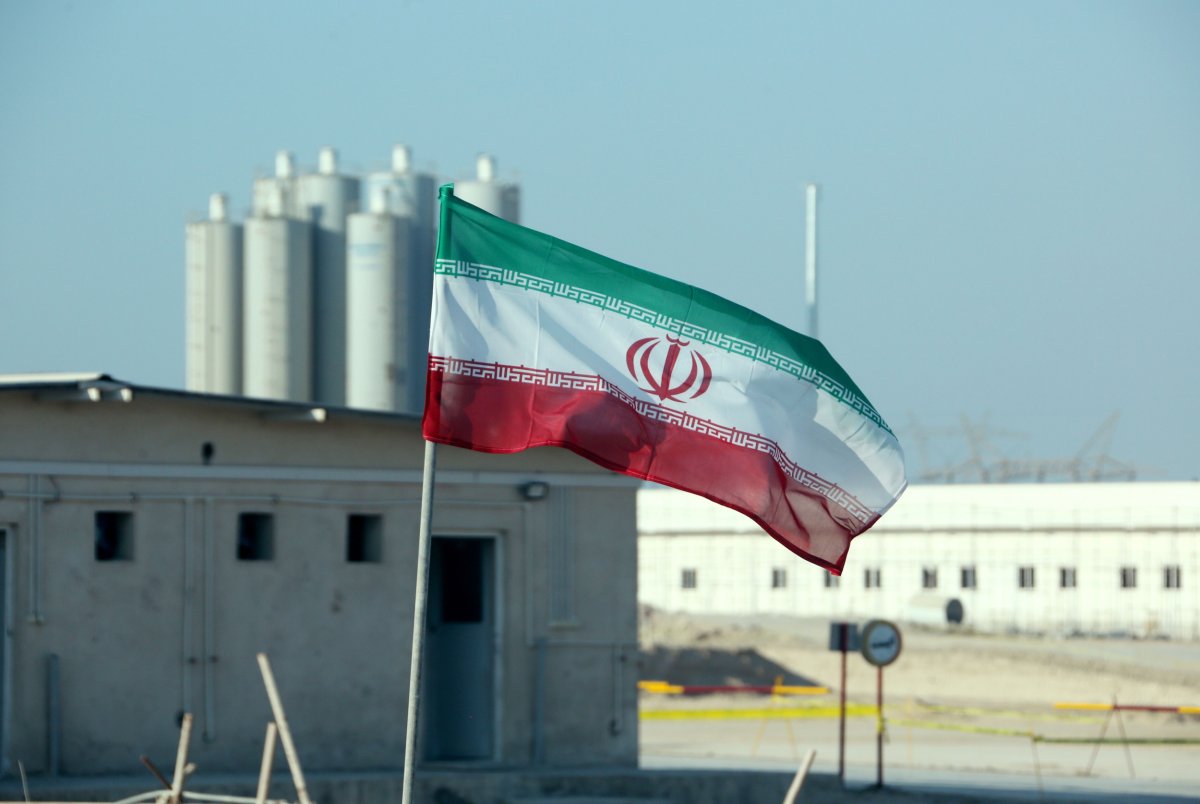The head of the International Atomic Energy Agency (IAEA) said Wednesday its inspectors are still trying to determine what is happening at Iran's nuclear energy sites, the Associated Press reported.
IAEA Director General Rafael Mariano Grossi traveled to meet the Atomic Energy Organization of Iran (AEOI) this week but reported no breakthrough in restoring the agency's ability to monitor Iran's nuclear program.
The IAEA had a confidential agreement in which it could monitor Iran's nuclear facilities with surveillance cameras, the AP reported. However, the agency has been unable to access imagery from the cameras since February. This is due to a December 2020 bill, passed by the Iranian parliament, promising to suspend U.N. inspections if European signatories did not suspend oil and banking sanctions.
IAEA inspectors are concerned about not having access to the footage amid Tehran's growing uranium stockpile, some of which is enriched up to 60 percent purity. Weapons-grade uranium is 90 percent.
Grossi told reporters in Vienna that the negotiations could not be finished, making them inconclusive. However, he mentioned that meeting the AEOI's new head, Mohammad Eslami, and Foreign Minister Hossein Amirabdollahian was a "positive element" that would "certainly help."
"We are close to the point where I would not be able to guarantee continuity of knowledge," Grossi said. "I'm not giving up on trying to find some understanding, but in terms of what we were discussing yesterday, we could not conclude an agreement."
For more reporting from the Associated Press, see below.

Grossi did not specify a timeframe, but said a long lack of access to a centrifuge parts production site near the northern city of Karaj "would at some point prevent me from continuing to say that I have an idea of what is going on."
Under the IAEA's deal with Iran, the agency also placed around 2,000 tamper-proof seals on nuclear material and equipment. Those seals communicated electronically to inspectors. Automated measuring devices also provided real-time data from the program. Inspectors haven't been able to access that data either, making the task of monitoring Iran's enriched uranium stockpile that much more difficult.
The agency also has sought monitoring of activities at the centrifuge parts production site near Karaj. The IAEA has had no access there since June after Iran said a sabotage attack by Israel considerably damaged the facility and an IAEA camera there.
Henry Rome, an analyst at the Eurasia Group, warned Iran's stance "reflects poorly on the outlook for the nuclear talks" in Vienna.
"Iran may calculate that its unconstrained nuclear advances and unmonitored centrifuge production will put more pressure on the West to give ground in talks quickly," Rome said. "But it will likely have the opposite effect."
Senior diplomats from Britain, China, France, Germany and Russia plan to meet Iranian officials in Vienna on November 29 to discuss bringing Tehran back into compliance with the 2015 deal known as the Joint Comprehensive Plan of Action, which eased sanctions on Iran in return for curbs on its nuclear program. The talks could pave the way for the U.S. to rejoin the accord.
The United States pulled out under former President Donald Trump and reimposed sanctions on Iran, prompting Tehran to abandon all the limits the deal placed on it. That has raised tensions across the wider Mideast as Israel has warned it won't allow Iran to be able to obtain a nuclear weapon.
Iran long has insisted its program is peaceful, though the IAEA and U.S. intelligence agencies say Tehran had an organized weapons program up until 2003.
In an interview with NPR, U.S. Special Envoy for Iran Rob Malley warned that America won't "sit idly by" if Iran gets "too close for comfort" with advances in its nuclear program.
"They are getting very close to having enough fissile material, if they chose to enrich, at weapons grade for a bomb," Malley told the broadcaster. "How close they are to a bomb has to do with weaponization, and there they are...further away.
"But again, we're not going to wait and see them get so close, and we hope that this could be resolved diplomatically and it should be."
Meanwhile on Wednesday, a deputy foreign minister and nuclear negotiator for Iran, Ali Bagheri Kani, traveled to the United Arab Emirates and met with a prominent Emirati diplomat, Anwar Gargash. The UAE's state-run WAM news agency described the meeting as dealing with "regional and international developments of common interest."

Uncommon Knowledge
Newsweek is committed to challenging conventional wisdom and finding connections in the search for common ground.
Newsweek is committed to challenging conventional wisdom and finding connections in the search for common ground.
About the writer
To read how Newsweek uses AI as a newsroom tool, Click here.








